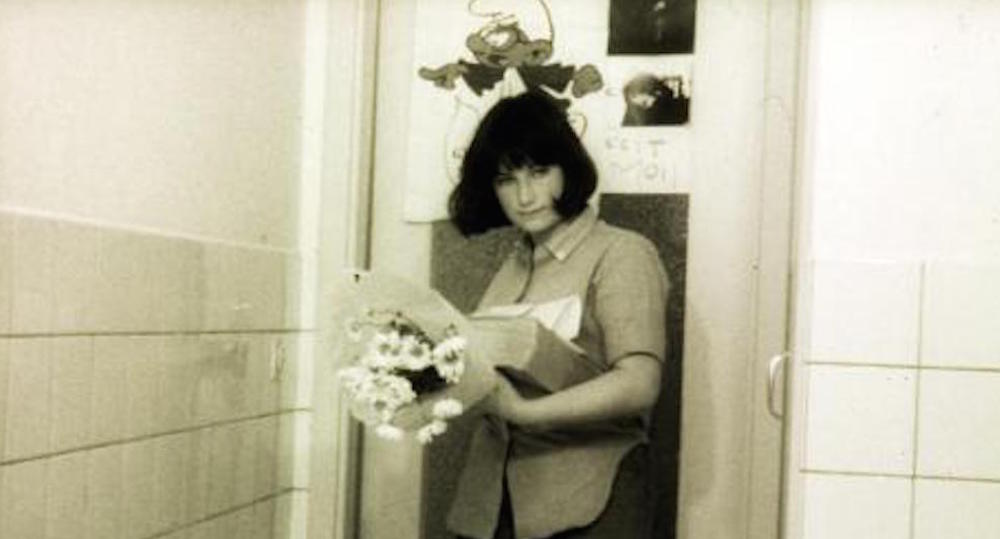VIDEONALE.scope #2

Cinematic art as the observation of time
Videonale-Scope-Exhibition-of-Works by Chantal Akerman and Rainer Komers
A Series of Events at Videonale Bonn
19.-23. November 2014
Curated by Daniel Kothenschulte
Chantal Akermann
If it is true that all the great film makers have reinvented the cinema for themselves then Chantal Akerman is the best example. As a teenager she saw two films which changed her life: Jean-Luc-Godard’s “Pierrot le Fou” was an awakening for her. And after she had seen Michael Snow’s avant-garde film “Wavelength” in 1967, she knew she just had to become a director. She soon broke off her film studies: There they taught the very academicism which the flourishing avant-garde had left behind long ago. At the age of 18 she took charge of her career, earned her own money and used it to produce her first short film “Saute ma Vie” which was premiered at Oberhausen. Since then, the Belgian’s work can be seen as a continuous explosion: Inspired in the early 70s by a stay in New York, where she came into contact with the flourishing structural cinema and the way in which Jonas Mekas and Andy Warhol captured time in their films, she gradually mastered all varieties of film: Avant-garde, documentaries, auteur film, melodrama, filmed literature and even the musical. She won international acclaim in 1975 with the epic-experimental drama “Jeanne Dielman – 32 Quai de Commerce” and is nowadays counted as one of the most influential directors of the last forty years.
As daughter of an Auschwitz survivor she regarded Trauma as an important theme. She rejected simple categorisation, just as she refused to be appropriated by feminism. It is not possible to experience her enormous body of work, whose scope she has widened in recent years with video installations in major art exhibitions such as Documenta and the Venice Biennale, in a mere five days. Videonale-Scope nevertheless dares to present an overview, beginning - using original copies of the films – with her early avant-garde film “Jeanne Dielmann”. For the first time her imposing filming of Joseph Conrad’s “La Folie Almayer” (Almayer’s Folly), which never reached Germany, can be seen. A special highlight is “One Day Pina Asked”, her portrait of Pina Bausch, which was recently revived in the USA with great success. And the moving journey through Eastern Europe, her film “De L’est” from 1993, demonstrates once again how the legacy of structural films, their silent, observant pictorial language, fertilised documentary film – qualities which also distinguish the work of her contemporary, Rainer Komers, who is the subject of the second exhibition of works.
Rainer Komers
With Rainer Komers one of the prophets of modern cinema is living in our land, in Mülheim an der Ruhr to be exact. Is it surprising that his films are better known all over the world than they are here? Like the works of James Benning, our guest at last year’s Videonale-Scope, they flourish on the boundary between documentary observation and the gentle artistic transformation which results from the deliberate way he handles the flow of time in his films: A result of the composition of the images and their editing. Komers himself is responsible for both of these.
Born in 1944, Komers first studied film at the Kunstakademie Düsseldorfer (Dusseldorf Art Academy) and later photography at the Folkwangschule in Essen. His artistic insight and a preference for an austere aesthetic, which manifests itself in his avoiding a wealth of detail, made him one of the most individual voices of the artistic documentary. His dialogue-free masterworks such as “Kobe” (2006), the portrait of a Japanese city, and its American counterpart “Milltown, Montana” (2009) are among the most sensitive works of this form and won awards all round the world. Equally the subject of attention was his trilogy “Erdbewegung”, which, without any commentary, shows the life in landscapes intersected by major roads: the “B244” in the Ruhr industrial area, the highly branched “Nome Road System” of Alaska and the Indian highway “NH2”. His feature-length documentaries “Erinnerung an Rheinhausen” (Memories of Rheinhausen) and “Ofen aus” (Cold Furnace) became aesthetic documents of a structural change which transformed the life and landscape of North Rhine-Westphalia forever.
For his lyrical documentary „Lettischer Sommer“ (Latvian Summer) in 1993, he was drawn to Eastern Europe at the same time as Chantal Akerman was there making her film “De L’est” (From the East), which we will be showing on the same evening. In them, both filmmakers approach regions going through a radical political transformation with a cinematic torpor more appropriate to the dimensons of time than any news programme. For the first time, almost the entire work of Rainer Kromers can be seen at one place.
All round the world, in Alaska, Montana, Ecuador, India, Japan and in Yemen, Komers finds places whose face is being altered by structural change and, even during their decay, finds an unshaped beauty.
It is Komers’ early political documentaries which are the special discovery of this exhibition of works, films such as “Wozu braucht man eine DKP-Fraktion im Rathaus“ (1975) (Who Needs a DKP Group in the Local Council), or “Zigeuner in Duisburg“(Gipsies in Duisburg). Screened using original film copies, these unvarnished pictures of life provide a plenitude of photographic information which continues to nourish Rainer Komers’ documentary film art even today.
Rainer Komers will be present at he screening of his films and will be available for discussion.
